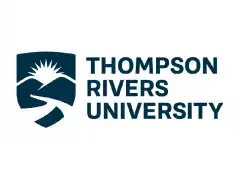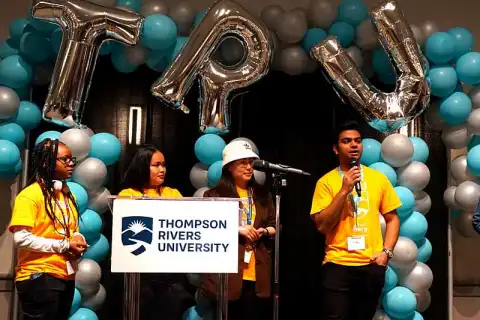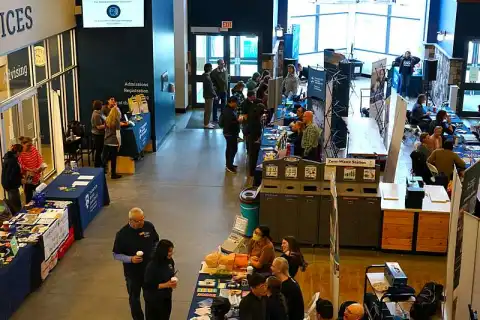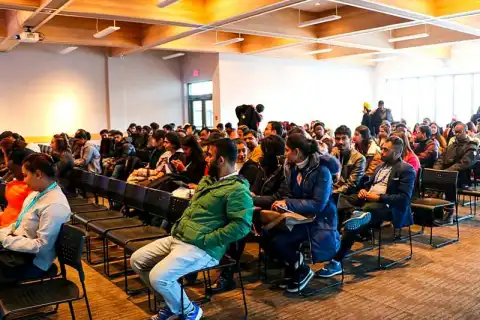Bachelor - Natural Resource Science
- 4 years
- Duration
- 101,880 CAD
- Price
- Rolling admission
- Start
- Rolling admission
- Deadline
- Bachelor
- Degree
- Campus
- Format
- Kamloops / Canada
- Location
- Thompson River University
- School
Program description
Professionals who are well versed in all aspects of natural resources are in high demand in a world where specialisation is the standard. This one-of-a-kind programme consists of 120 credits that can be finished in four or five years full-time or up to seven years part-time. You'll study biology, chemistry, ecology, scientific techniques, and resource management in depth.
Field research provides valuable educational opportunities. Many of the courses offered by the department of natural resource science involve fieldwork. You will acquire field experience in areas such as vegetation analysis, soil analysis, forest stand measurements, lake analysis, and vertebrate and invertebrate sampling techniques as you progress through the program.
Field excursions in the classroom are numerous and varied. Included are field trips to the TRU Education and Research station adjacent to Wells Gray Provincial Park, grassland ecosystems, littoral and interior forest ecosystems, forest research stations, active mining sites (reclamation), local ranches, and fish hatcheries (locations change from year to year).
The programme prepares you for a variety of natural resource sector careers as well as graduate studies. You'll be qualified to work in resource administration and planning for the government or industry.
Program structure
1st year
- Principles of Biology 1
- Intro. to University Writing
- Calculus 1 or
- Calculus for the Biol. Sci. 1
- The Science & Mngt of
- Dendrology 1
- Principles of Biology 2
- Writing for Science & Tech.
- Forest Ecology & Silvics 1
2nd year
- Biometrics
- Chemical Bonding & Organic Chemistry
- Intro. to Study of Soils
- Forest Ecology & Silvics 2
- Fundamentals of Chemistry
- Microeconomics
- Forest Mensuration
- Diversity & Ecology of the Vertebrates
- Ichthyology
3rd year
- Silviculture
- Limnology
- NR Entomology
- NR Pathology
- Fire Ecology & Mngt
- Geographic Info. Systems
- Population Biology
- Econ. of Climate Change
- Land Use Economics
- Grassland Ecology
4th year
- Range Management
- Wildlife Management 1
- Fisheries Management
- Watershed Management
- NR Policy & Planning
- Wildlife Management 2
- Conflict Resolution in NR
- Graduating Essay
- Econ of Climate Change or
- Land Use Economics
Price
- Tuition — 101,880 CAD per education
- 40 courses (2,547 CAD per course) = 120 credits (849 CAD per credit)
- Application Fees — 100 CAD (one time, non-refundable)
Requirements for applicants
- Grade 12 (or equivalent) or mature student status
- English Studies 12/English First Peoples 12 with a minimum of 73% (or equivalent)
- Pre-calculus 12 with a minimum C+ (or equivalent)
- Life Sciences 11 (or equivalent)
- Chemistry 11 (or equivalent)
- Students with Anatomy & Physiology 12, Chemistry 12 and Physics 12 (or equivalent) will be given preference.
- A minimum cumulative GPA of 2.0 each year
About the university

The success of our students is our top goal here at Thompson Rivers University. Our varied community, personalized student services, opportunities for real-world application, and adaptable curriculum give each student the tools they need to succeed.
TRU has approximately 140 on-campus programs and over 60 Open Learning programs, ranging from traditional academics to trades, certifications to graduate degrees. Co-op work terms, undergraduate research, field schools and practicums, service learning, and other programs give our students the chance to put their knowledge into practice under the supervision of approachable faculty mentors. Our open, adaptable classroom encourages exploration, production, and discovery. Our students do, too.
Our Mission
TRU is a comprehensive, learner-centered, sustainable university that provides high-quality, adaptable education, training, research, and scholarship to its local, national, and worldwide student body and the communities it serves.
Our Campuses
Located in the southern interior of British Columbia, TRU's Kamloops and Williams Lake campuses lie in the traditional territory of the Secwepemc peoples.





